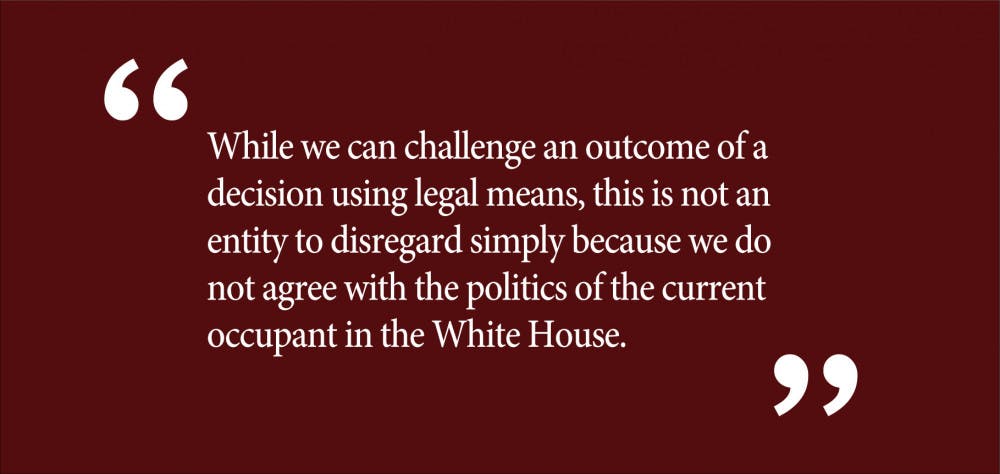To the Editor:
I write to address a number of points made in a letter written by faculty colleagues regarding graduate student unionization, published in The Herald Tuesday, Oct. 23.
First, it is important to emphasize that we agree on many key points:
Graduate students are highly valued members of our community who are integral to our commitment to education and research in service to society. We acknowledge and respect their significant contributions and benefit from their engagement in classrooms, laboratories, campus life and through shared governance.
The decision on whether or not to unionize is one for graduate students to make — and one that we hope is made fully informed by the facts. The University supports the right of graduate students to explore whether or not unionization is right for them, and has provided extensive informational resources for their consideration.
The upcoming election should be fair, impartial and free from intimidation, harassment or coercion by University or union representatives.
The University has worked hard to demonstrate our commitment to these beliefs. We have created and circulated widely the Faculty Conduct Guidelines and have signed the June 21 Union-University Conduct Rules Pre-Election Agreement with the union. I would encourage the authors of the letter — and all members of our community — to read the pre-election agreement, which states clearly that should graduate students vote in favor of union representation, Brown would recognize the union as the “exclusive collective bargaining representative” (Sec 3. A.) and would “bargain in good faith.” (Sec. 5. A.)
Where I disagree, however, is with the signatories’ characterization of the role of the National Labor Relations Board. After the NLRB’s August 2016 Columbia decision that classified graduate students as employees, the University stated that it would comply with the ruling and support the right of students to decide for themselves whether or not to unionize. In other words, Brown decided not to challenge the decision as other institutions have done and instead to respect the rights of graduate students to make this important choice for themselves.
Like it or not, the NLRB is the government agency that has governed private sector labor relations in the United States for more than 50 years. It is an important institution that has withstood many presidential transitions. While we can challenge an outcome of a decision using legal means, this is not an entity to disregard simply because we do not agree with the politics of the current occupant in the White House.
We know that many colleagues would have preferred that the University join with several of our peers and actively object to the August 2016 decision. We have held firm as a University in agreeing to follow the NLRB’s determination regarding the status of graduate students as employees. This is not hedging: It was a commitment made when the outcome of the 2016 election pointed to a different result than a Donald Trump presidency. Should the NLRB change its ruling, we have stated, clearly and openly, that we would adhere to this change. I believe the University’s position is preferable to one based on the personal views or political leanings of whoever happens to be serving in senior leadership roles at Brown.
The provisions in the pre-election agreement were agreed to by all parties when we signed the document in June. Let’s live by the agreement and promote an environment that supports all of our graduate students — both those who support and those who oppose unionization — as they take full advantage of their rights.
Richard Locke P’18
Provost





